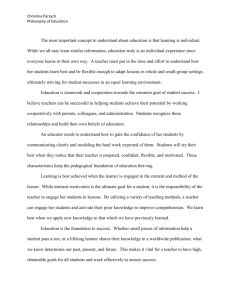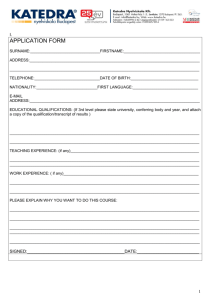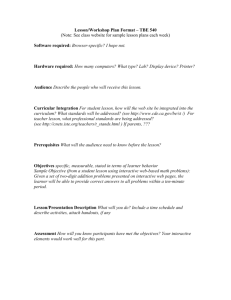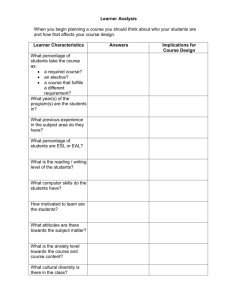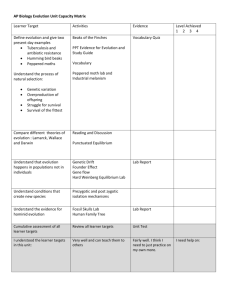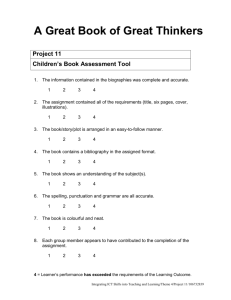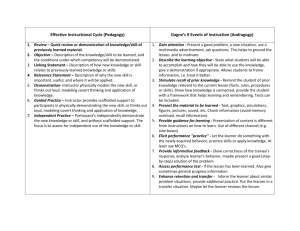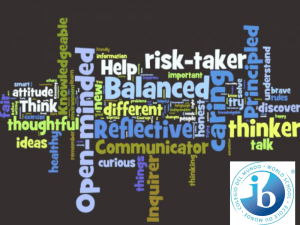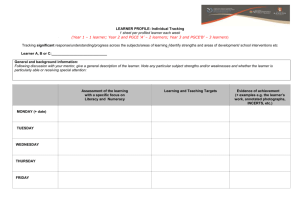Teaching children GS 3-6
advertisement
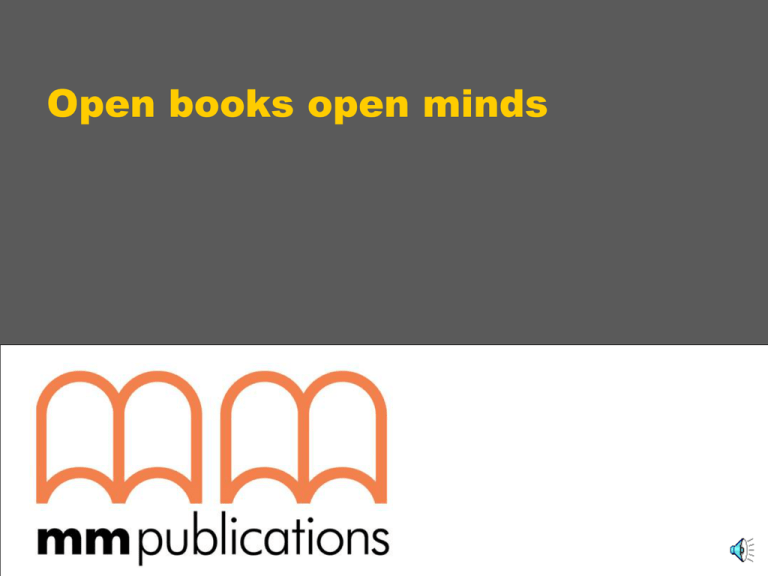
Open books open minds How do children learn languages? How do children learn languages? 1. How do you think children learn their first language? a) by imitating adults b) by experimenting and trying out hypotheses about how the language works c) both of the above 2. Do children with a high intelligence quotient (IQ) score learn to speak foreign languages quicker and better than others? a) IQ is a crucial factor b) IQ is not a crucial factor c) setting and context are more important 3. How important is high motivation in successful language learning? a) Not really important b) The most important factor c) An important factor but not the only one 4. Is it better for pupils to learn a foreign language when they are below the age of puberty? a) definitely yes b) probably yes c) it depends on all sorts of other factors What is different about teaching children? Children have a lot of physical energy. TPR activities If you…, stand up. Children get bored easily. Children have a wide range of emotional needs. Children are still developing physically and conceptually. Children tend to be self-oriented and preoccupied with their own world. A class in Budapest Feedback on video 1. How did the teacher deal with any problems that arose? 2. Would you have dealt with any of the problems differently? If so, how exactly? Problems… 1. Student doodling in his/her notebook after the pairwork. 2. Student answering out of turn, until the teacher tells him/her not to. 3. A student that says nothing unless the teacher addresses him/her by name. 4. Student stands up and moves around after the pairwork. 5. A student that starts crying when the teacher asks him/her to work in pairs. He/she wants to work with another student. Children learn more slowly and forget things quickly. Children learn more slowly and forget things quickly. Children are excellent mimics. Children seek meaning in language. Different children learn best in different ways What kind of language learner are you? What kind of language learner are you? What kind of language learner are you? An average class of adults understanding of children 29comes % through the hands, eyes, and ears, so physical world dominant at all 34 % times Berman (1998) 37 % Multiple intelligences Learning I’m learning to say thank you. And I’m learning to say please. And I’m learning to use Kleenex, Not my sweater, when I sneeze. And I’m learning not to dribble. And I’m learning not to slurp. And I’m learning (though it sometimes really hurts me) Not to burp. And I’m learning to chew softer When I eat corn on the cob. And I’m learning that it’s much Much easier to be a slob. . Judith, Viorst. (1981) If I Were in Charge of the World and Other Worries: Poems for Children and their Parents. Aladdin Books Learning is fun Thank you



